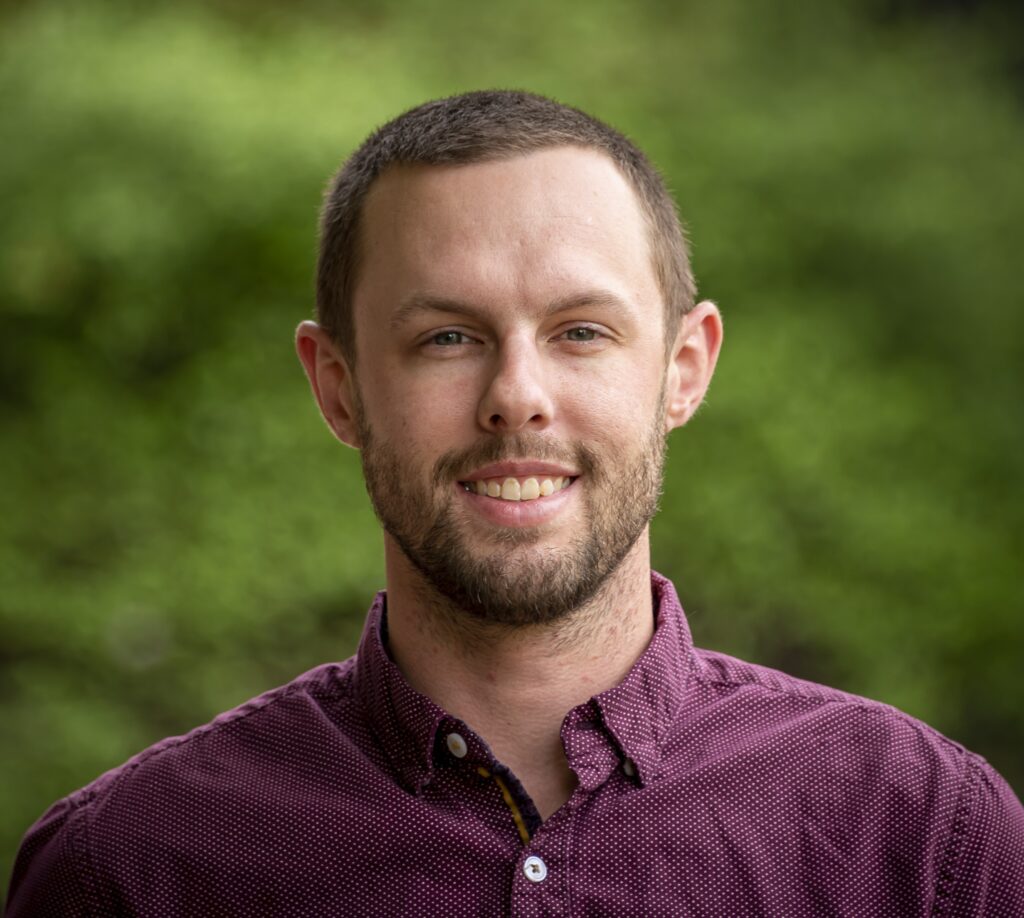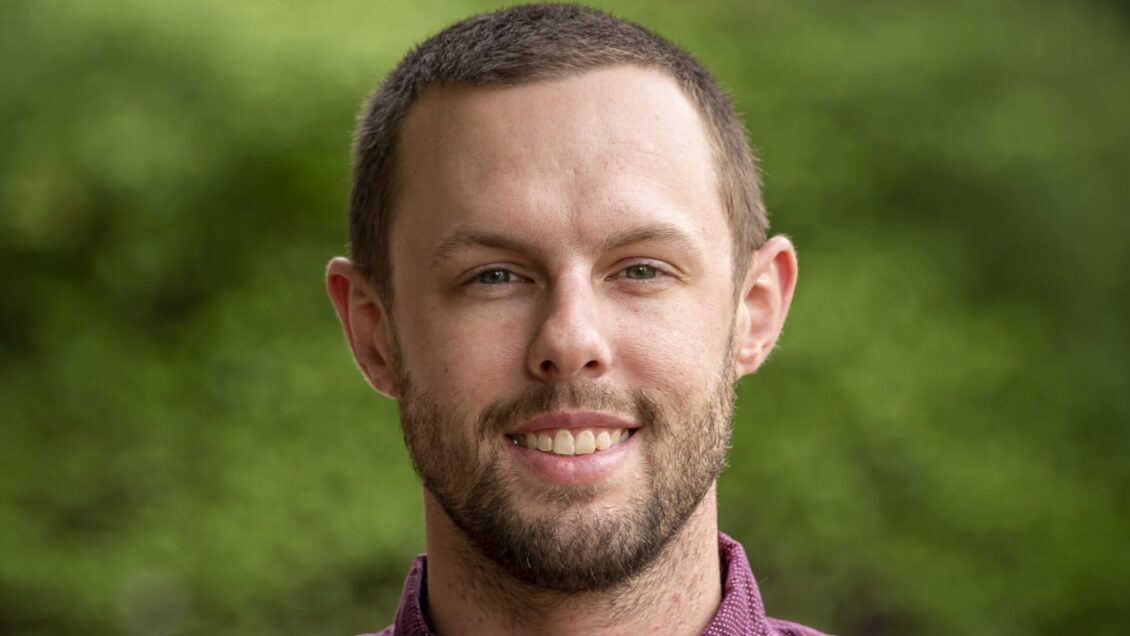As he steps into the role of science coordinator for an organization that has focused unified efforts across 25 states on conserving bobwhite quail, Jared Elmore admits his background might not be exactly what one would expect.
“I’m the first one to tell anyone who asks: I’m not a quail specialist,” he said. “I take a broader perspective. I’ve done a lot of work with grassland birds, and my passions kind of lie in grassland birds and declines to bird populations and impacts to those species.”
Elmore has significant experience with massive datasets, however, as well as radar data and GIS, giving him an extensive toolbox within his skill set to help the National Bobwhite & Grassland Initiative (NBGI) expand its efforts beyond simply focusing on quail.
Those efforts began in 2002 as a paper-based plan by the Southeastern Quail Study Group under the umbrella of Southeastern Association of Fish and Wildlife Agencies. That plan, termed the Northern Bobwhite Conservation Initiative (NBCI), attracted considerable attention from other states in the bobwhite range and across the country.
But while the initiative was originally built on conserving quail — northern bobwhite quail have experienced drastic declines across the range, largely due to land use changes — the mission has shifted somewhat to expand efforts to conserve all grasslands birds.
“All grassland birds are experiencing declines; it’s not just bobwhite quail,” Elmore said. “The bobwhite quail is a recognizable face to put on the front of the organization and all the conservation principles — it’s something that hunters, especially, are passionate about because they want to maintain populations of a huntable game bird — but to really put conservation dollars to work, we must be strategic in pulling in funding from as many sources as possible and also keeping the goals broad so that multiple stakeholders realize the importance of that mission.”
Thus, though still largely focused on quail, the organizational name has been tweaked slightly — going from NBCI to NBGI — to include grasslands, grassland birds and other associated species such as pollinators that have also experienced declines.

NBGI is a range-wide restoration initiative comprised of a broad coalition of experts in bobwhite quail and grassland conservation. Clemson University’s Department of Forestry and Environmental Conservation (FEC), in the College of Agriculture, Forestry and Life Sciences, has world-class research, teaching and outreach programs in natural resources conservation and is committed to creating work and learning spaces that attract and celebrate a diverse community of scholars across a broad spectrum of cultural identities.
Elmore comes to Clemson after previously serving as a Postdoctoral Research Associate in the Department of Wildlife, Fisheries and Aquaculture at Mississippi State University. After earning his bachelor’s and master’s degrees in Biology at the University of South Alabama, Elmore completed his doctoral work in Natural Resource Ecology and Management at Oklahoma State University in 2020.
NBGI Director John Morgan said collaborative habitat restoration with public and private partners stands at the center of the NBGI’s storied history across 25 states.
“Science is the guiding light of those efforts designed to minimize the costs of restoration and management while maximizing conservation outcomes measured in numbers of northern bobwhite and grassland birds,” Morgan said. “The Coordinated Implementation Program represents one the nation’s few adaptive management frameworks deploying a ‘learn while doing’ approach.”
NBGI’s bobwhite focal area program — the Coordinated Implementation Program, or CIP — is a science-based initiative designed to demonstrate conclusively that populations of bobwhites and other species can be recovered when the proper amount and arrangement of habitat is provided on a landscape scale.
Morgan said Elmore’s unique background as a grassland bird ecologist paired with exceptional analytical expertise equip him to lead this cutting-edge program.
There are 26 NBGI focal areas in 20 states, along with a similar-sized and located reference area for each. NBGI’s vision is to grow the focal area concept to focal landscapes and then focal regions over time.
Elmore will serve as a Research Assistant Professor in Clemson’s Department of Forestry and Environmental Conservation (FEC) and will be physically located in Clemson where he will serve as a colleague to other FEC faculty.
“Dr. Elmore’s background in grassland ecosystem ecology meshes well with other faculty that work in bird ecology, fire ecology and wildlife habitat management,” FEC Department Chair Todd Petty said. “Another important connection is with the Boone and Crockett program. Once we have the program fully endowed, we will be looking to hire an endowed professorship that will complement the work of Jared and NBGI.”
Founded by Teddy Roosevelt in 1887, the Boone and Crockett Club has been at the forefront of helping to establish sound wildlife conservation policy in the U.S., and one of its most forward-looking initiatives is its University Programs established to attract the brightest students to top-notch universities, including Clemson, to work with distinguished wildlife faculty.
In his role as NBGI science coordinator, Elmore will collaborate with diverse partners to craft science-based and adaptive strategies to restore and maintain wild bobwhite quail, associated species, and their habitats on a national scale. His leadership will further scientific research on bobwhite quail and songbirds through coordination of a 10-plus year study across 25 states.
NBGI’s unique approach has attracted widespread attention because of its standardization of protocols across the bobwhite range and NBGI’s maintenance of the database at Clemson University, which provides easy access for partners.
“Bobwhite quail are an important indicator to the overall health of the environment, and the NBGI has allowed Clemson to use the expertise in conservation and wildlife we have at the University to further understand and conserve the species,” College of Agriculture, Forestry and Life Sciences Dean Keith Belli said. “When it was announced the new NBGI center would be housed at Clemson University in 2021, we envisioned it would further enhance our mission to produce and connect science-based information to address resource needs while providing experiential and hands-on learning opportunities for our students.
“Now, with the addition of Jared’s diverse research interest and background, we believe we can continue to expand the possibilities of our efforts.”
Get in touch and we will connect you with the author or another expert.
Or email us at news@clemson.edu

